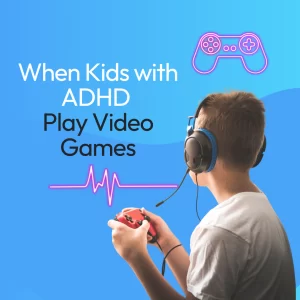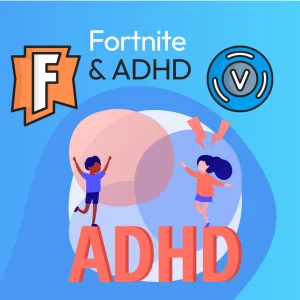Our sixth post in our psychological flexibility series is about values! Something that each one of our previous posts has touched on, but not fully explored. We have covered a lot of material in the last five posts, so let’s do a quick recap: first, remember that psychological flexibility is the process of remaining fully in contact with the present moment, in a way that helps us act out behavior that is in line with our Values, even in the face of difficult thoughts/emotions. We then talked about acceptance, a values-based choice, not failure or tolerance, not giving-up or giving in. The third post taught us that the goal of defusion is to get your arms around the language we use so that it does not control us, so that we can manage difficulty on our way to living out our values and chasing after meaning in our lives. Next, we explored mindfulness, and the idea that when we are mindful we are able to identify our values and judge how our values are helping us move toward goal directed behaviors. And in our most recent post—self as context—we wanted to make congruent the relationship between the observing-self, and the conceptualized-self so that we can align our actions with a set of values that we create for ourselves to determine if our behavior is moving us closer to, or further from, our valued endpoint.
What a journey! Even writing that paragraph above is a reminder of how much amazing material Acceptance & Commitment Therapy (ACT) has to offer, and how much material we have covered over the last 5-weeks. (If you are just joining us in this series, I would encourage you to read all about psychological flexibility in our previous blog posts.) A ton of questions always come to mind when I think about values: 1) what are they; 2) how do I identify them; 3) where do they come from; 4) how do I know if mine are any good; 5) can I pick my values, or are they inside of me already and waiting for me to discover them? Well, hopefully by the end of this post the concept of values will feel a little less ambiguous, and maybe it will get you thinking about what you might say your values are in this moment.
Imagine that I put to boxes that were identical in every way in front of you and said “pick one.” You may have a number of questions, but given that I refuse to answer any questions or differentiate the boxes in any way from one another, you chose the second box. Why did you choose the second box? Well, the choice was completely arbitrary, and your answer might be “I don’t know, I just picked one.” It is easy to see how the consequence of this choice would have very little outcome on a person’s life, even if there were ¢5 cents inside the box they chose and $50 in the box they did not choose, there is no way to be attached to the outcome because the decision was made randomly. One key to values is that they are freely chosen and they reinforce our activities, motivating us to make some choices over others. Said another way: we cannot value everything, and we have to make choices about what things we do value because the scope of our values is limited. We cannot value everything equally, and if you have ever had several tough classes at once you may remember that you probably did not weigh each class the same, spending equal time preparing for multimedia as you did for Honors Chemistry. This helps us understand how we answer our first question above (what are values?): values are the fundamental beliefs that guide & motivate us, and that exist behind our behaviors.
The power of values, questioned by point number 2 (how do I identify them?) is that we can look at our behavior and see if it matches what we believe our values to be. This can be very motivational in the sense that we can find incongruence between valued life directions (e.g., being a good friend) and our current behaviors (i.e., knowing that I have not made enough time for my close friendships, lately). Finding these areas where we are incongruent can help us identify our values, and move in a more valued direction. Another way to reflect on our values is simply to look at the areas of our lives where we believe ourselves to really shine! Knowing that you enjoy spirituality, physical fitness, or deep and meaningful interpersonal relationships, can help you identify some of the things you value over other areas of your life that you may value less (maybe at the moment Marriage/Intimate Relationships, for example, is not a “value” that you hold). Where these things come from—point #3—can seem like a mystery; however, we can remember that since a critical feature of values is that they are “freely chosen,” in some sense we get to decide how we prioritize our values, but we would have difficulty creating our own values from nothing. To find what is meaningful to us, we have to explore who we are as an individual. In some cases we can look back at our own behavior and excavate some of our values, we can read great books, and think about the people we admire, and through that process we can discover some of the things we value. And then we can close the amount of incongruence that lives between our actions and those things we value to push ourselves in a goal-directed way. Along that process of discovering our values, and by extension discovering who we are, we may find that we have an internal ‘nature’ that we have to contend with. That we may value some things other people do, but we are fundamentally different than other people. For example, I can tell you with certainty that I see value in the work of software engineers, and engineers of all types for that matter—my father was an engineer; however, I can tell you with certainty that my personality is one who needs to interact with people, often and deeply. Therefore, sitting in front of a computer designing a bridge, or software program, or iPhone App, is probably not a place where I will find that I am thriving as a person. But I sure am grateful that other people do find great meaning in those areas. They have the ability to make the world a better place!
So, we arrive at point #4, how you know if your values are any good! Well behavioral psychologists have a basic theory as to how to approach this problem. We start living! More specifically, we attempt to live out our values, and we watch what happens as a result. If one of my values is interpersonal relationships, then I should try to be the best friend that I can be and ideally, I would see my existing friendships deepen and become more meaningful, and I would see new friendships begin to emerge. I would know this was a positive outcome if I begin to experience an ideal future. But what happens if in reality as I gain new friendships, my existing relationships begin to suffer in a way that was unexpected and unappreciated? Well, then I need to think about how I am living my values, because something happened that was unexpected (losing friendships), and I need to assess why. Now, consider whether we can pick our values. We touched on this briefly above when we talked about discovering our values, and it seems very unlikely that I could just decide to become a long-distance runner; however, the wonderful thing about values is, again, that we get to choose. We get start ACTING like a runner: maybe we start getting up early, walking regularly or jogging, signing up for a 5k with a friend, who knows…Maybe that’s exactly how someone becomes a runner, one step at a time J
And maybe that’s how we connect with our values. Just take things one step at a time.




3 thoughts on “Values: What are the things that matter, and how do we decide what to reach for?”
Pingback: What is Leadership? - Stand 4 Kind - Leadership - Values & Leadership
Pingback: Prevent negative peer pressure! - Stand 4 Kind - Peer Pressure
Pingback: Acceptance v. Avoidance - Living with uncertainty - Stand 4 Kind